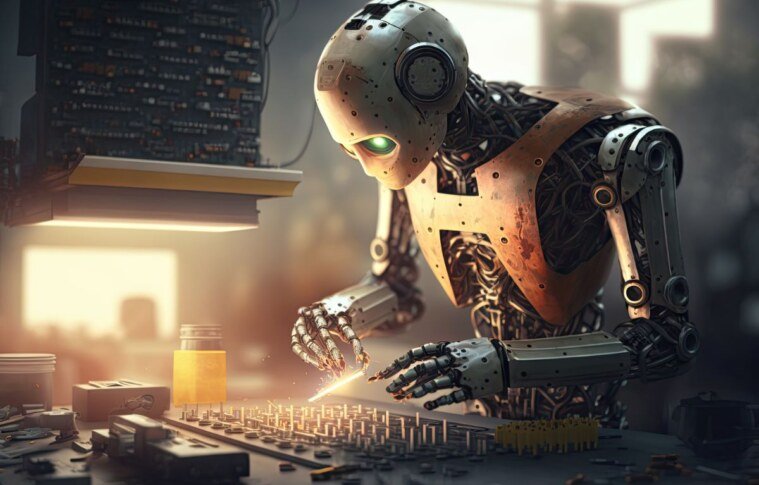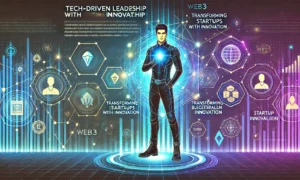Artificial Intelligence (AI) and Quantum Computing are two of the most transformative technologies of the 21st century. While both are often seen as complementary, their distinct capabilities and potential overlap in certain domains have sparked a thought-provoking question: Will AI eventually replace quantum computing?
This case study examines the strengths and limitations of both technologies, explores areas of convergence and divergence, and evaluates whether AI could supplant quantum computing or if they are destined to coexist.
Background: Understanding AI and Quantum Computing
Artificial Intelligence
AI refers to computational systems capable of performing tasks that require human intelligence, such as problem-solving, decision-making, and pattern recognition.
- Key Strengths:
- Highly effective for analyzing large datasets.
- Can learn and adapt through machine learning algorithms.
- Widely applicable across industries.
Quantum Computing
Quantum computing leverages quantum mechanics to solve problems that are infeasible for classical computers.
- Key Strengths:
- Exceptional at solving optimization problems, factoring large numbers, and simulating quantum systems.
- Offers exponential speed-up for specific problems like those tackled by Shor’s Algorithm and Grover’s Algorithm.
Comparing AI and Quantum Computing
| Feature | AI | Quantum Computing |
| Core Functionality | Analyzes and learns from data. | Solves complex mathematical problems. |
| Computational Power | Dependent on classical processors (CPUs/GPUs/TPUs). | Utilizes qubits for parallel computation. |
| Application Areas | Autonomous systems, healthcare, finance, NLP, robotics. | Cryptography, optimization, materials science, physics. |
| Maturity | Advanced and widely implemented. | Emerging, still in experimental stages. |
| Limitations | Struggles with certain computations (e.g., prime factorization). | Limited scalability and hardware reliability. |
Case Study: Intersection of AI and Quantum Computing
Scenario
A global pharmaceutical company faces a challenge: identifying new drug candidates by simulating molecular interactions. This task requires enormous computational resources, especially for modeling quantum-level phenomena.
Approach
- AI Application:
- Used to analyze existing drug data and predict potential candidates.
- Machine learning models optimize parameters for simulations.
- Quantum Computing Application:
- Simulated molecular interactions at the quantum level to identify viable compounds.
Outcome
- AI’s Role: Accelerated data analysis but was limited by its reliance on classical computational methods for molecular simulation.
- Quantum Computing’s Role: Provided precise molecular modeling, reducing the number of false positives.
Findings
While AI handled large-scale data processing effectively, it could not replace the quantum mechanical computations performed by the quantum computer. Instead, the two technologies complemented each other.
Why AI Cannot Replace Quantum Computing
- Fundamental Differences in Purpose
- AI excels in pattern recognition and decision-making, whereas quantum computing is designed for solving problems rooted in quantum mechanics and mathematics.
- Tasks like prime factorization, quantum simulations, and cryptographic analysis are inherently quantum problems that AI cannot resolve.
- Limitations of Classical Hardware
- AI operates on classical hardware, which cannot match the exponential computational power of quantum computers for certain problems.
- Quantum computing provides unique solutions that classical systems, even AI-driven ones, cannot emulate.
- Complementary Potential
- AI can be used to optimize quantum algorithms and manage quantum computing workflows.
- Quantum computers can accelerate AI training by solving optimization problems faster.
The Future of AI and Quantum Computing
1. Synergy
Rather than replacing one another, AI and quantum computing are more likely to converge:
- AI can guide quantum experiments by identifying optimal setups.
- Quantum computers can enhance AI algorithms by solving sub-problems more efficiently.
2. Industry Examples
- IBM: Developing hybrid systems combining quantum computing and AI for applications in finance and healthcare.
- Google: Leveraging quantum processors to improve machine learning tasks.
3. Adoption Challenges
Both technologies face challenges:
- AI: Ethical concerns, data privacy, and bias in decision-making.
- Quantum Computing: Scalability, hardware stability, and high costs.
Lessons Learned
- Coexistence Over Replacement
AI and quantum computing address fundamentally different problem spaces. While they overlap in certain areas, their unique strengths make them complementary rather than interchangeable. - Hybrid Models Will Lead the Future
The integration of AI and quantum computing will unlock new possibilities, such as faster drug discovery, advanced cryptography, and real-time optimization in logistics. - Research and Development Are Key
Investments in both fields are necessary to overcome current limitations and realize their full potential.
Conclusion
AI and quantum computing represent distinct paradigms of innovation. While AI excels in data-driven tasks, quantum computing is indispensable for solving inherently quantum problems. The case study of pharmaceutical research demonstrates how the two technologies can work together, with AI aiding data analysis and quantum computing tackling complex simulations.
Instead of asking whether AI will replace quantum computing, the focus should shift to how these technologies can complement each other to address the world’s most pressing challenges. Together, they hold the promise of transforming industries and redefining what is computationally possible.
Disclaimer
Posts in the Notebook are written by individual members and reflect personal insights or opinions. Please verify any information independently. If you have any concerns, notify the admin immediately so we can take action before any legal steps are taken.





